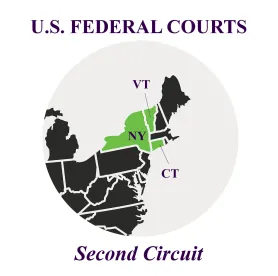On December 6, 2019, a divided Second Circuit panel concluded that settlement proposals in accepted offers of judgment under FRCP 68 are not subject to judicial review and approval. Mei Xing Yu et al. v. Hasaki Restaurant Inc., No. 17-3888 (2d Cir. Dec. 6, 2019). The decision departs from the conventional view that settlements of Fair Labor Standards Act (FLSA) claims generally require judicial or U.S. Department of Labor (DOL) approval to be enforceable.
In this closely-watched case, the plaintiff sued his restaurant-employer on behalf of himself and similarly situated employees for overtime violations under the FLSA and New York law. The restaurant sent the plaintiff, and the plaintiff accepted, an offer of judgment pursuant to FRCP 68(a)—which requires the clerk of the court to “enter judgment” when the offer and notice of acceptance have been filed with the court. The district court sua sponte ordered the parties to submit the settlement offer to the court for fairness review, relying on the Second Circuit’s opinion in Cheeks v. Freeport Pancake House, Inc., 796 F.3d 199 (2d Cir. 2015). In Cheeks, the Court of Appeals held that stipulated dismissals of FLSA claims under FRCP 41(a) require judicial approval. The district court noted that parties could not “evade the requirement for judicial (or DOL) approval by way of Rule 68.”
In a 2-1 decision, the Court of Appeals held that Cheeks does not extend to FRCP 68 offers of judgment. The majority distinguished FRCP 68(a)’s mandatory dismissal language from FRCP 41(a), which contains an exception to the self-executing nature of the dismissal where a federal statute governing the claim requires court approval. (The Second Circuit in Cheeks concluded that the FLSA fell within the exception in FRCP 41(a).) Because FRCP 68(a) contains no such exception to mandatory entry of judgment, the majority declined to read one into the rule.
The majority recognized the Cheeks court’s concern about “private, secret settlements and waivers of an employee’s FLSA rights that the Supreme Court [has] refused to endorse.” However, the majority reasoned that FRCP 68(a) circumvents the problems inherent in purely private settlements because offers of judgment—unlike FRCP 41(a) stipulated dismissals—must be publicly filed on the court’s docket. According to the majority, settlement agreements reached during the course of ongoing litigation are distinguishable from “private, back‐room compromises that could easily result in exploitation of the worker and the release of his or her rights.”
The decision resolves a split among district courts in the Second Circuit and provides employers with much-awaited confirmation that settlement of FLSA claims pursuant to FRCP 68(a) does not require judicial approval.



 />i
/>i

